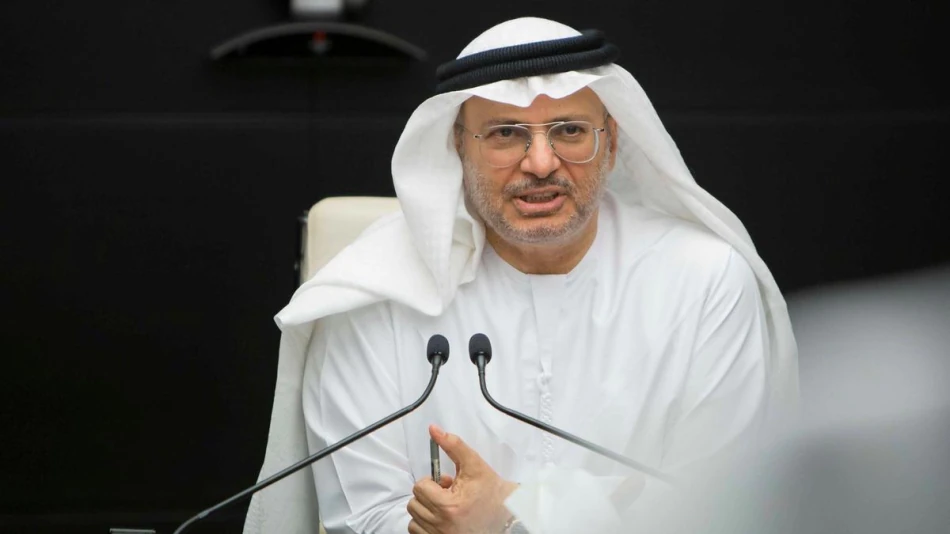
Qirqash: Qatar Not Alone in Facing Challenges
UAE Reinforces Gulf Unity as Regional Tensions Rise Over Israeli Actions
The United Arab Emirates has publicly reaffirmed its principled support for Qatar, emphasizing shared Gulf destiny amid escalating regional tensions. The diplomatic declaration comes as Arab and Islamic nations coordinate their response to what they describe as Israeli aggression, signaling a potential shift in Middle Eastern geopolitical alignments.
Diplomatic Solidarity Takes Center Stage
Dr. Anwar Mohammed Gargash, diplomatic advisor to the UAE President, used social media platform X to underscore the Emirates' stance toward Qatar as "principled" and rooted in the "shared destiny that unites Arab Gulf states across decades and crises."
This public endorsement carries significant weight given the complex history between the two nations. The UAE was among four Arab countries that imposed a diplomatic and economic blockade on Qatar from 2017 to 2021, making current expressions of solidarity particularly noteworthy.
Regional Summit Diplomacy Gains Momentum
Gargash pointed to recent Gulf and Arab-Islamic summits held in Doha as evidence that "Qatar does not stand alone." These gatherings have emerged as crucial platforms for coordinating regional responses to Israeli military actions, with participating nations seeking to present a unified front.
The diplomatic advisor emphasized that what he termed "treacherous Israeli aggression" has actually strengthened regional solidarity, arguing that such actions demonstrate the international community's commitment to preventing "the law of the jungle" from governing global behavior.
Strategic Implications for Gulf Cooperation
This renewed UAE-Qatar alignment reflects broader strategic calculations across the Gulf Cooperation Council. Historical precedent suggests that external threats often catalyze internal Gulf unity, overriding bilateral disputes in favor of collective security concerns.
Economic and Security Dimensions
The rapprochement has practical implications beyond diplomatic rhetoric. Qatar's substantial natural gas reserves and the UAE's position as a regional financial hub create natural synergies for economic cooperation. Both nations also share concerns about regional stability affecting energy markets and trade routes.
Broader Middle Eastern Realignment
The UAE's public support for Qatar occurs against a backdrop of shifting regional dynamics. As traditional alliances face new pressures, Gulf states appear increasingly willing to prioritize regional solidarity over past grievances.
This trend mirrors similar reconciliation efforts seen elsewhere in the region, where economic pragmatism and security concerns often override historical tensions. The Abraham Accords, which normalized UAE-Israel relations in 2020, demonstrated the Emirates' willingness to pursue strategic partnerships based on contemporary interests rather than historical positions.
Looking Forward: Sustained Unity or Tactical Alliance?
The durability of this renewed UAE-Qatar cooperation will likely depend on how regional tensions evolve. Past Gulf reconciliations have sometimes proven fragile when immediate crisis pressures subside.
However, the current alignment benefits both nations economically and strategically. For Qatar, UAE support provides crucial regional legitimacy and potential economic opportunities. For the Emirates, partnership with Qatar strengthens its position as a regional diplomatic broker while maintaining relationships across the political spectrum.
The emphasis on "shared destiny" in Gargash's statement suggests UAE leadership views Gulf unity as essential for long-term regional stability, regardless of individual bilateral disagreements.
Most Viewed News

 Sara Khaled
Sara Khaled






